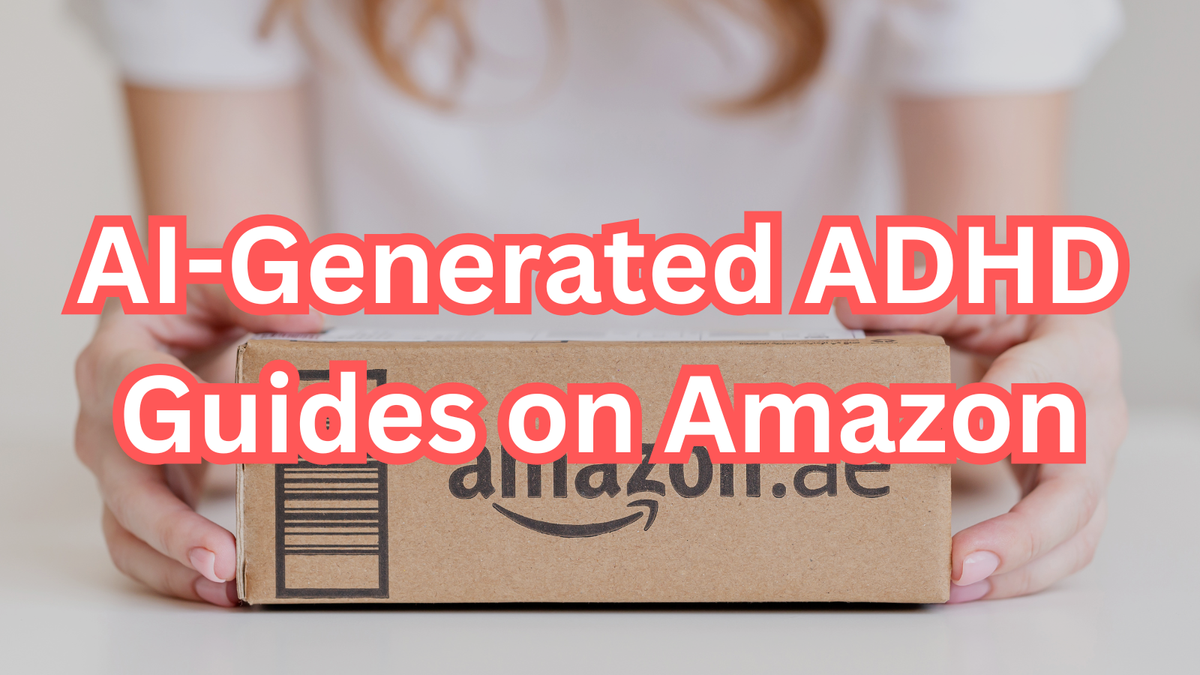Are AI-Generated ADHD Guides on Amazon Putting Lives at Risk?

Amazon’s marketplace is flooded with AI-authored books giving dangerous ADHD advice—and experts say profit-driven algorithms are to blame. From encouraging toxic mushroom tasting to spreading mental health misinformation, chatbot-generated content is slipping through the cracks. Now, books targeting vulnerable ADHD patients with unverified 'techniques' highlight a growing crisis. Let’s dive in.
🤖 The AI-Generated Health Advice Epidemic
- 🚨 100% AI, 0% Expertise: Originality.ai tested 8 ADHD guides—all scored 100% on AI detection. Titles like Men with Adult ADHD Diet & Fitness lack human authorship.
- 💔 Harmful 'Advice': One book warned ADHD sufferers their families "won’t forgive the emotional damage you inflict," while others push pseudoscientific claims about early death risks.
- 📈 Amazon’s Incentive Problem: As researcher Michael Cook notes, Amazon profits whether books are "trustworthy or not," creating a race to the bottom for AI-generated content.
- 🌐 Regulatory Vacuum: No laws require labeling AI-authored books, and copyright rules only apply if specific human content is copied.
✅ Proposed Solutions: Can Amazon Clean Up Its Act?
- 🔍 Better Detection Tools: Amazon claims to use "proactive and reactive methods" to remove guideline-breaking books—but critics say current AI detection is easily fooled.
- 📜 Legal Pressure: Shannon Vallor suggests tort law could enforce "basic duties of care," while the ASA bans misleading "human-authored" claims.
- 👩⚕️ Expert Gatekeeping: Cook argues AI health content should require human expert review—a model used by platforms like WebMD.

⚠️ Why This Crisis Won’t End Soon
- 💰 Profit Over Safety: Amazon earns a cut from every sale, incentivizing volume over quality. Vallor calls this a "race to the bottom" in a "wild west" regulatory landscape.
- 🤖 AI’s Knowledge Gaps: ChatGPT mixes medical facts with conspiracy theories—and can’t critically analyze data. As Cook warns, "Generative AI systems should not handle sensitive topics unsupervised."
- 🕵️ Detection Arms Race: AI-generated author bios and stock photos (like Richard Wordsworth’s discovery) make fake expertise harder to spot.
🚀 Final Thoughts: A Test Case for Tech Accountability
Success hinges on:
- 📉 Stricter Platform Policies: Amazon must prioritize health content vetting over rapid monetization.
- 📜 Government Intervention: Laws mandating AI content labels—similar to EU’s upcoming AI Act—could curb misinformation.
- 👥 Public Awareness: Readers like Wordsworth’s father need tools to spot AI books (e.g., checking author credentials).
As AI floods marketplaces with "dangerous nonsense," one question define this era: Should tech giants profit from unregulated AI content—even if it harms vulnerable users? What do YOU think?
Let us know on X (Former Twitter)
Source: Rachel Hall. 'Dangerous nonsense': AI-authored books about ADHD for sale on Amazon, 4 May 2025. https://www.theguardian.com/technology/2025/may/04/dangerous-nonsense-ai-authored-books-about-adhd-for-sale-on-amazon










